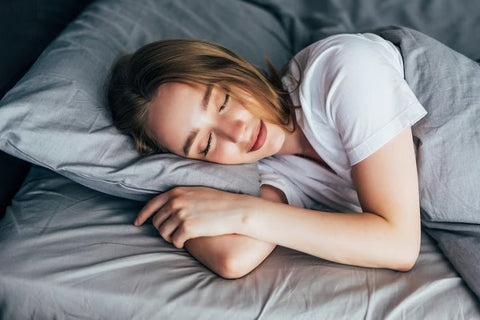A study published earlier this year in the journal Frontiers in Neuroscience, which objectively measured (using polysomnography) the sleep of participants — all with different sleep disorders, in an urban environment, without setting an alarm clock — throughout the year, concluded that, although people slept more in winter, it was not a significant extra time. What was noticeable was a change in the architecture of sleep, the distribution of the time we spend sleeping into phases : in winter, we spend more time in the REM phase.
However, sleeping more or finding it harder to get out of bed does not necessarily mean that we need more hours because we always have the same need to sleep the same hours in winter as in summer , it is just that in winter we have more opportunity... that is, the environment, with more hours of darkness, favors sleep .
In general, Spaniards have a sleep deficit. We are sleeping less than six and a half hours, while we should sleep between seven and nine hours. In fact, it is in summer that we sleep even less and we should try to sleep more.
In this environment that promotes sleep, light is the main factor that influences it, as it is one of the synchronizers of the circadian cycle . When there is no sun, what is promoted is the increase in melatonin, the sleep hormone in humans; if the alarm clock rings before dawn or the room is completely dark, waking up is more complicated.

Vitamin D also plays a role , as we tend to have lower levels in winter. These are associated with less exposure to light, and can also affect the production of serotonin, a hormone that influences our sleep-wake cycle and our mood.
Changes in habits can also have an impact . If, for example, we exercise less in winter, we will sleep worse, which will make it harder for us to get out of bed when the alarm clock goes off.
Why do we want to keep sleeping when the alarm clock goes off?
There are several reasons why it is difficult to get up in the morning, which are:
The so-called “sleep inertia”: Some people have a natural tendency that predisposes them to transition from sleep to wakefulness slowly.
Activation of the frontal lobes . These brain structures regulate willpower and, to a certain extent, judgment and reasoning. They are inactive during sleep, and when we wake up they may take a while to become active, so that for a few moments we lack the correct willpower and reasoning, which leads to making the wrong decision to continue sleeping.
Homeostatic regulation of sleep . This is a biological system whose mission is to maintain balance, which in this case means that one gets the sleep one needs. Homeostasis in sleep works in a similar way to other needs such as hunger or thirst. This, transferred to sleep, means that when one has rested enough, the body wakes up satisfied and quickly begins to wake up, but if one has not slept enough, the homeostatic system pushes to maintain a little more sleep.

Temperature is important
Fruit flies, which were the subject of a very interesting study , also wake up to noise, but if it is cold for them (18ºC), they go back to sleep. This was one of the findings made by those responsible for the study published in 2020 in the journal “Current Biology”, which detected a sensory system in flies that detects cold in the antennae and communicates it to the neural network that regulates sleep. It is not only the light that matters, but also the temperature.
Does the cold of winter mornings also affect humans? The answer is a bit more complicated, according to Marco Gallio, associate professor of neurobiology at Northwestern University. After all, humans wear clothes, sleep indoors and cover themselves with blankets, so the effects of winter are somewhat more diffused. For this reason, light is considered to be the main synchronizer of sleep in humans.
Anyone who has ever spent sleepless summer nights because of the heat knows that temperature matters. To sleep, we need to cool our brains, we need the temperature to drop, and for that, we need the environment to be colder than our interior. This is also favoured in winter; in the morning, however, the effect of temperature may have more to do with not wanting to leave a warm place if we feel it freezing just by sticking a finger out.





Comments (0)
There are no comments for this article. Be the first one to leave a message!